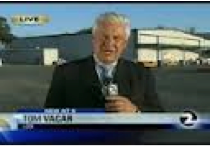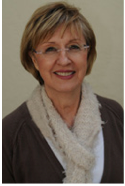Recently, Tom Vacar, Channel 2 consumer editor e-mailed me the resume of a friend of his who is looking for work. The man has a distinguished career in communications for large scale infrastructure projects, including serving as a spokesperson for a major municipal entity.
 Tom and I are part of an informal employment network for “older workers” (workers over 50) in the Bay Area. The seven of us that I would count among this network are not an official organization. We have no name or real structure or formal recruitment process. People come to us informally, as they may know one of us directly or through one or two degrees of separation. We try to use our contacts to provide leads and entry into firms.
Tom and I are part of an informal employment network for “older workers” (workers over 50) in the Bay Area. The seven of us that I would count among this network are not an official organization. We have no name or real structure or formal recruitment process. People come to us informally, as they may know one of us directly or through one or two degrees of separation. We try to use our contacts to provide leads and entry into firms.
We know that “there but for the grace of God” we all are one step away from searching for work. We know that even with all of the high tech job boards, the network is the best way of locating a job. Most of all we know that there is nothing worse than growing old today in California’s job market.
Experience, depth of knowledge, contacts, judgment: all of these characteristics improve as we age in the job market. At the same time, the hiring processes in California don’t place a lot of weight on these characteristics. Instead, the hiring emphasis is on the new, the young, the blank slate. This is true particularly of our technology and entertainment sectors, as noted in this article last week from Reuters on “mature workers” and Silicon Valley. But it occurs throughout all sectors.
A growing number of job counselors in California are concentrating their practices on advising older workers. Ms. Camille Grabowski, for example, is an experienced California job counselor with a practice that includes workers of all ages. Her focus is on workers over 50. Her website, “The 50 Plus Career Coach” is tailored to workers over 50, with sections for job seekers, persons reentering the job market, and persons seeking transition careers.
Ms. Grabowski has ten strategies for “overcoming age bias in job search”. A number of these strategies involve keeping your skills current, keeping up with the most recent research and newest technologies. Most of the strategies, though, involve presentation and how you can sell yourself to interviewers who are ten or twenty years younger (or more), and might be prepared to dismiss you out-of-hand. Among these strategies:
“Don’t Mention It: Don’t Bring up your age or your experience which may suggest your age.”
“Do develop an air of confidence, vigor and competence. Rid your mind of thoughts of age bias so you don’t give out any unconscious signals that age is an issue.”
“Don’t focus on your years of experience on your resume. Employers want to know what you can contribute now.”
“Do emphasize your skills and accomplishments on your resume. Crete a T-chart and match your skills and accomplishments to the key requirements of the job.”
All good strategies, along with her advice on being upbeat and conveying enthusiasm for the firm and position. Further, Ms. Grabowski urges older job seekers to seek out “age-friendly” employers. Ms. Grabowski is connected with Retirementjobs.com, which regularly hosts webinars on job search for older workers, and compiles its own list of age-friendly employers—“companies who see the value of maintaining an age friendly workplace.”
As for Tom Vacar’s friend, after speaking with him, I emailed contacts at five large civil/structural engineering firms with offices in the Bay Area. Two of the firms emailed back within the hour to say that they wanted to meet him. However, though he followed up with emails and calls, nothing materialized. The firms, while holding their own, turned out not to be in a hiring mode, other than for recently-graduated engineers. Public relations firms express interest mainly in twenty-or- thirty-something workers, making an exception only for more senior professionals who can bring clients with them.
Last Friday, I sent out an additional round of emails to engineering and public relations contacts. We’ll see. “These firms should be begging him to work for them, given his expertise and nationwide contacts”, I told Tom. But we both knew that wasn’t the case today, for him or for nearly all of us over fifty in California.

